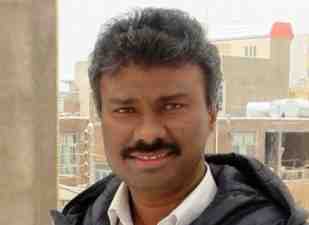The US forces and the intervention in Afghanistan did little for the actual empowerment of the Afghan people, says Jesuit Father Alexis Prem Kumar, who had spent several months in Taliban captivity.
Father Prem was abducted on June 2, 2014, from the Zendjan district of Afghanistan’s Herat province and released on February 22 the following year through the intervention of the Indian government. He is currently based in Sri Lanka.

In an interview to a Catholic website, the former director of the Jesuit Refugee Service (JRS), who had spent five years in Afghanistan, said, “ Peace will return to Afghanistan if the international community leaves the country to its own people.”
“In my opinion, the international community is responsible for the takeover of Afghanistan by the Taliban. In 2001 when the US forces entered Afghanistan, there was not much resistance from the Taliban. Now after 20 years, when the Taliban captured the major towns and cities of Afghanistan, there was not much resistance. This raises the question on the existence and purpose of the international community in Afghanistan, “ he points out.
This insight comes from his five year long experiences working at the grassroots level in the country, where he could observe how ‘corruption prevailed everywhere in the past 20 years since there was no proper accountability mechanism in the country’.
The expectation was that the international community would empower the local people. However, the ‘aid mentality’ of most players, served to increase the dependency of the local population.
Even though people of Afghanistan have ‘grown in terms of education and government establishments’ the future ahead is very uncertain.
While the Taliban has fort the moment put on a benign face, the priest still fears that the fate of the small Christian community in Afghanistan is uncertain under the Taliban.
“ I have listened to the Taliban spokesperson Suhail Shaheen. He says that the Taliban has already announced amnesty to the people in the country — women will access education including university, they can wear any type of hijab, not necessarily burka and the Taliban will have an inclusive government and will approach the international community for rebuilding the nation,” says Father Prem.
There is suspicion and fear among the people that democracy, freedom, and equality of women are not part of the Taliban’s ideology, he says.
Though there is some hope, the grim reality and the uncertainty of what the new Islamist regime will do looms large.
“I am really concerned and worried on seeing the sudden takeover of Afghanistan by the Taliban. I am worried more about my staff, who have to face the terrible consequences and the two Indian Jesuits of JRS in Afghanistan who were not able to return to India due to the sudden developments. I also think of all our students, especially the female students, about their future and their dreams.”
All that can be done is to hope and pray that the Indian government finds a way to engage with the new regime, and ensure the safety of its citizens in that strife-torn country.